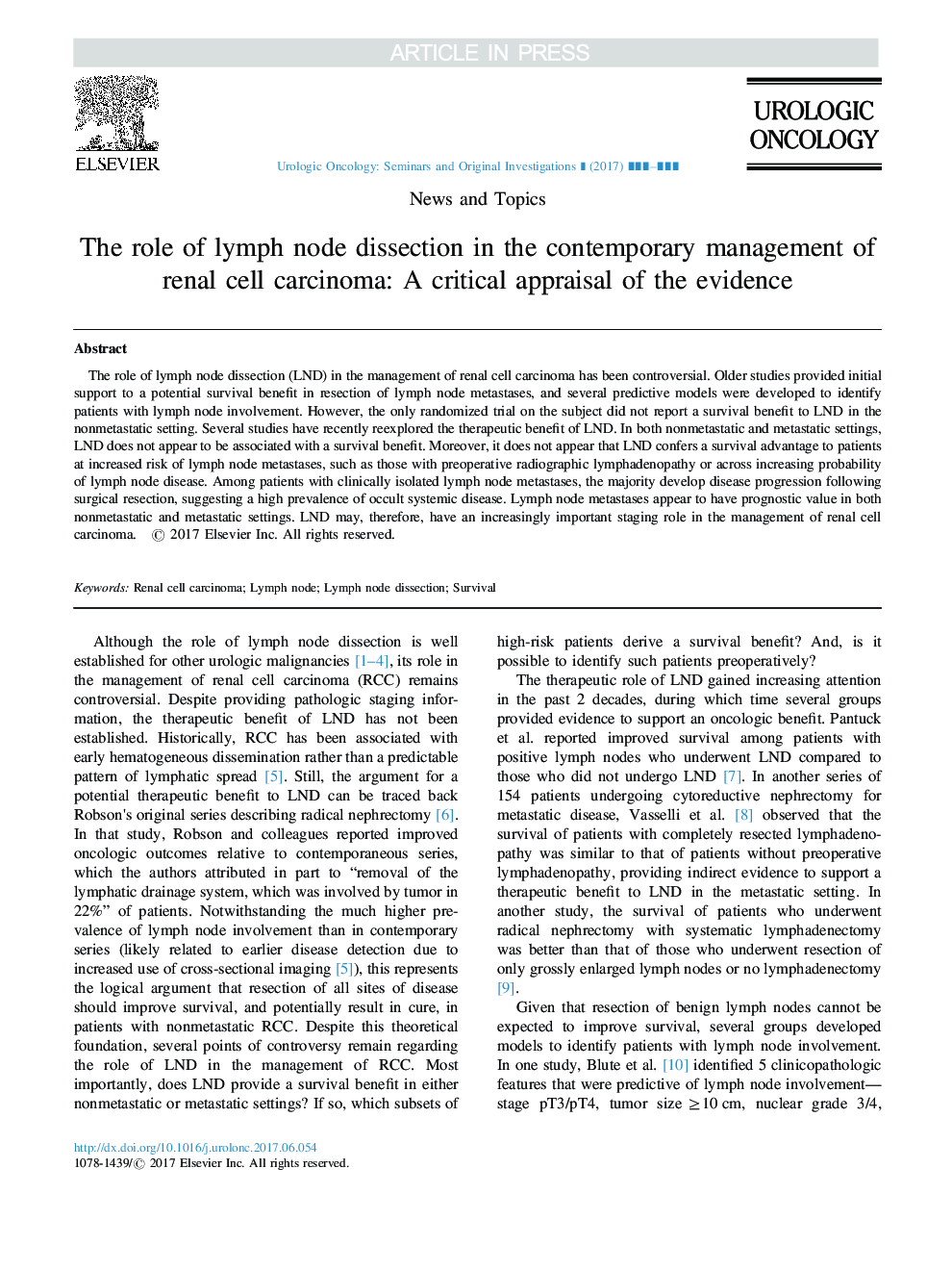| Article ID | Journal | Published Year | Pages | File Type |
|---|---|---|---|---|
| 5702496 | Urologic Oncology: Seminars and Original Investigations | 2017 | 4 Pages |
Abstract
The role of lymph node dissection (LND) in the management of renal cell carcinoma has been controversial. Older studies provided initial support to a potential survival benefit in resection of lymph node metastases, and several predictive models were developed to identify patients with lymph node involvement. However, the only randomized trial on the subject did not report a survival benefit to LND in the nonmetastatic setting. Several studies have recently reexplored the therapeutic benefit of LND. In both nonmetastatic and metastatic settings, LND does not appear to be associated with a survival benefit. Moreover, it does not appear that LND confers a survival advantage to patients at increased risk of lymph node metastases, such as those with preoperative radiographic lymphadenopathy or across increasing probability of lymph node disease. Among patients with clinically isolated lymph node metastases, the majority develop disease progression following surgical resection, suggesting a high prevalence of occult systemic disease. Lymph node metastases appear to have prognostic value in both nonmetastatic and metastatic settings. LND may, therefore, have an increasingly important staging role in the management of renal cell carcinoma.
Related Topics
Health Sciences
Medicine and Dentistry
Oncology
Authors
Joseph MD, Boris MD,
